Traversing Through Tanzania
-
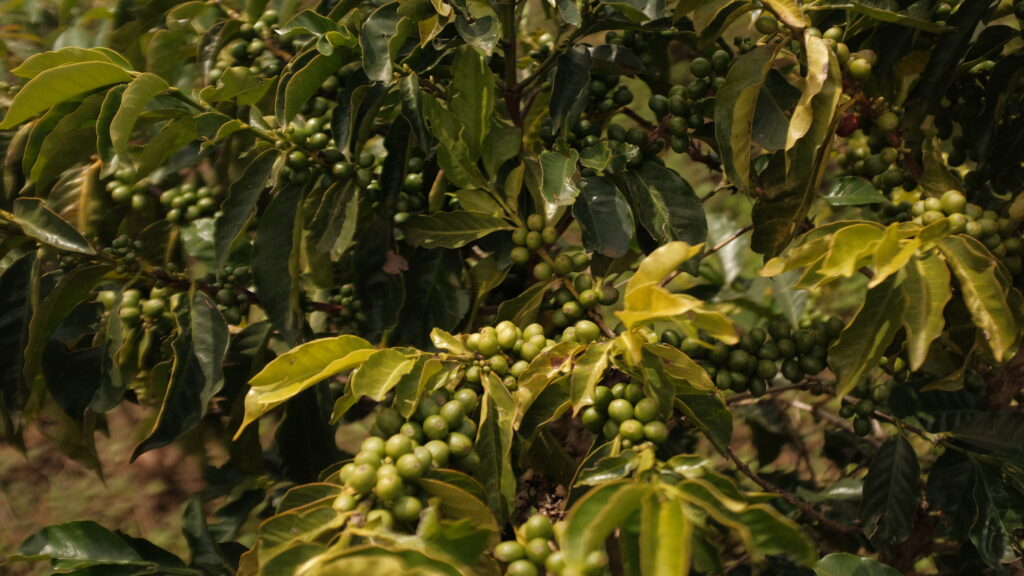
-
Coffee has been around in Tanzania for centuries, beginning with the Haya tribe in the northwest, back in the 16th century. Coffee soon spread throughout the North after the British and the Germans bought up land and planted coffee at a larger scale. Today, coffee grows more in the South, and about 6% of the population are involved with coffee production. And this number is only growing. Tanzania’s government strongly supports coffee production, and are currently seeking ways to increase yields.
Tanzania is ranked 19th amongst global producers, but the country is slowly climbing the ladder as yields increase. Join our Traceability Manager, as she ventures to Tarime, Karatu, and Songwe to explore three different producing areas of the wonderful Tanzania.
-
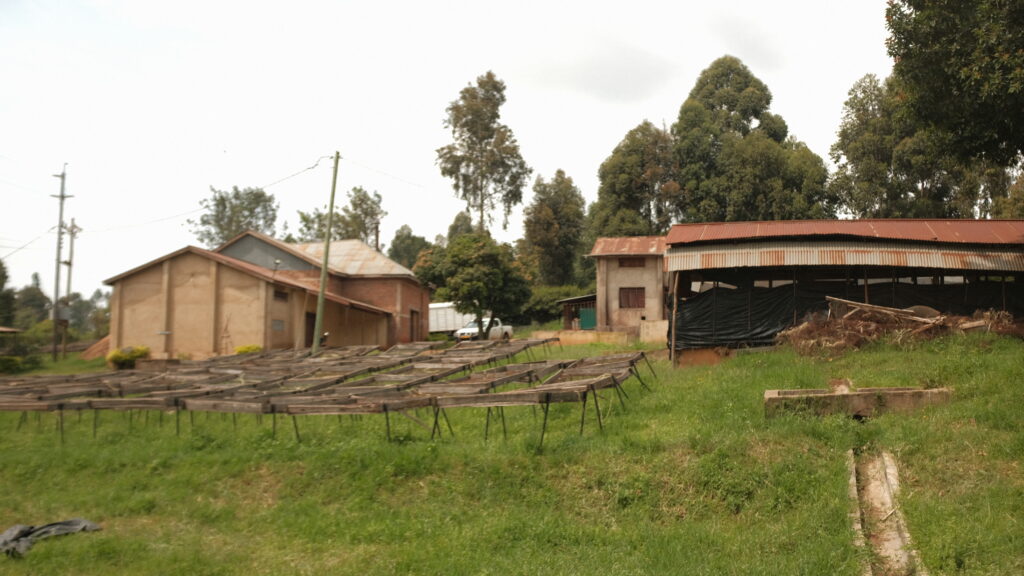
-
Tarime is situated near the northwest border of Kenya in Tanzania. It is here where the Muriba Central Processing Unit (CPU) maintains its relations with local coffee groups and processes coffee for the region. In Tanzania, roughly 90% of coffee production comes from smallholder farmers, whilst the rest comes from larger estates. These smallholder farmers rely on Agricultural Marketing Cooperative Societies (AMCOS) to collect and process their coffee and distribute payment.
In Tarime, the various AMCOS groups send their collected cherries to the Muriba CPU (photographed above) to be processed and sold either via the auction or direct sales. This facility opened its doors in 2017 and works with five local AMCOS groups. At the CPU, after the cherries are delivered, they are sorted and sent through a pulping machine to remove the external fruit. From there, the coffee ferments in tanks to break down the external mucilage, and is afterwards sent through washing channels and spread out on one of the 400 drying beds to dry in the open sun. After the coffee reaches its ideal moisture content, it is sent to a dry mill in Moshi (near Mt. Kilimanjaro) to be hulled and prepared for export.
-
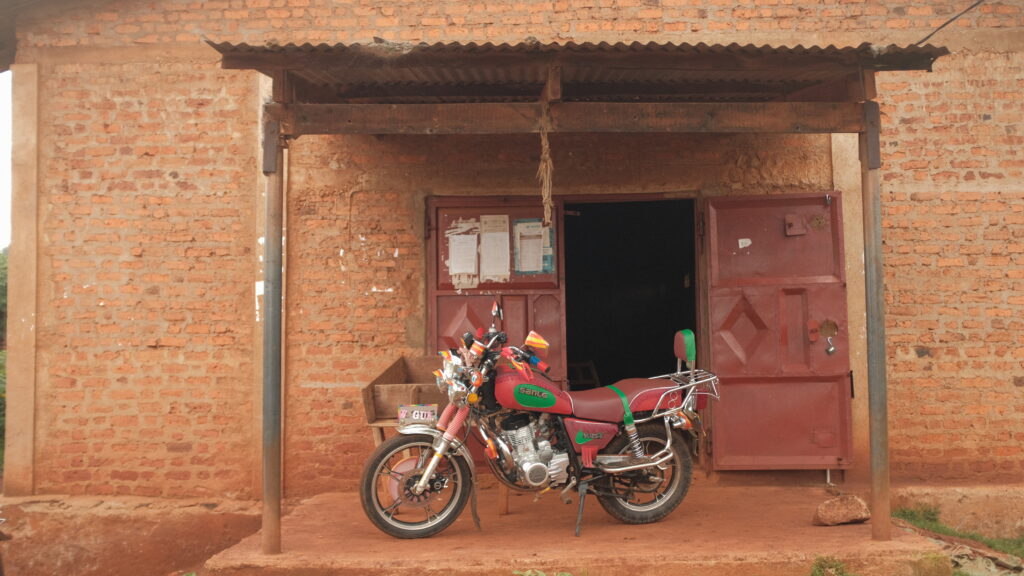
-
A common varietal in Tarime is Compact, and the government has actually been distributing Compact seedlings throughout Tanzania to promote production because it is high yielding, bears fruit earlier, and has a tolerance to Coffee Leaf Rust and Coffee Berry Disease.
The Tagare AMCOS is one of the groups selling their cherries to the Muriba CPU (collection point photographed above). 40% of Muriba’s coffee comes from this AMCOS, which was started six years ago. There are 149 farmers belonging to this AMCOS, half of which are women. Once the farmers bring their cherries to the AMCOS collection point, the cherries are weighed and assessed and the farmers receive cash in full. Farmers generally have roughly 0.3 hectares on average.
-
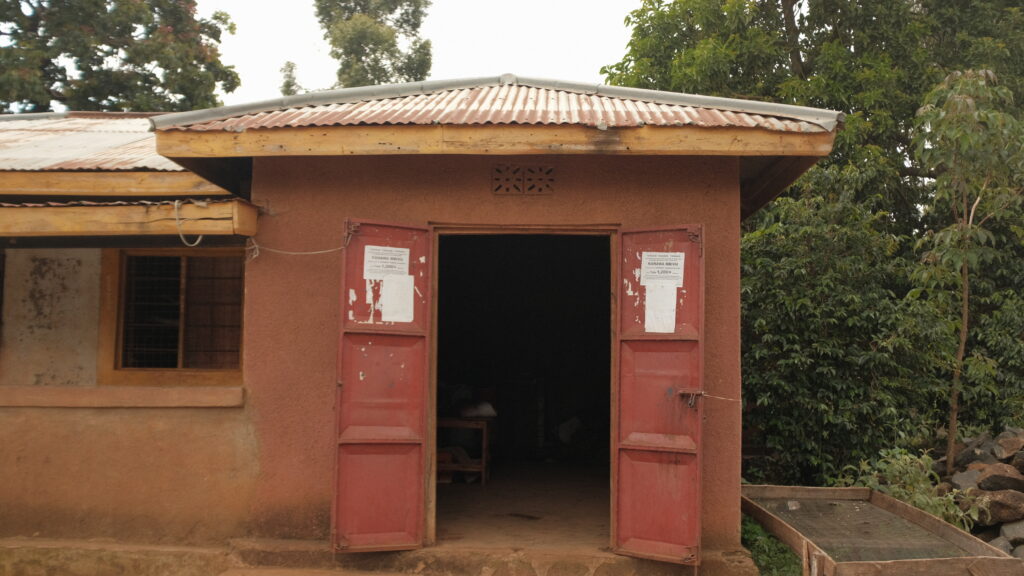
-
The Kema AMCOS (collection point photographed above) is another group collecting cherries for the Muriba CPU, and has been running for eight years. The AMCOS represents 500 farmers, 200 of which are women, and their coffee make up about 30% of Muirba’s buying.
-
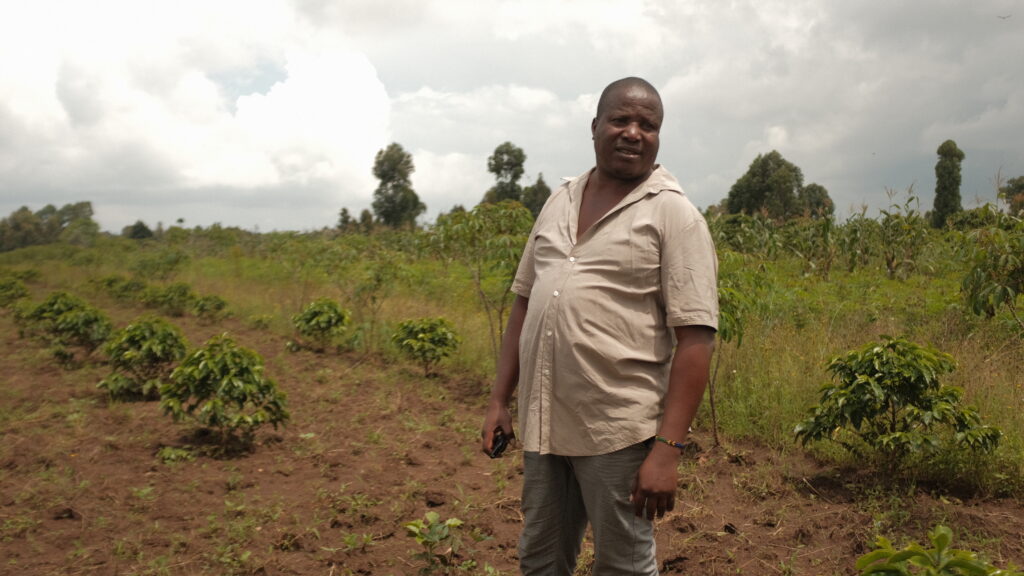
-
Keraryo (photographed above) is one farmer belonging to the AMCOS, and his farm is slightly less than a hectare, but filled with plenty of Compact trees already bearing significant levels of fruit. He has been growing coffee for 20 years and mentions that it is a great way of life, bringing in a nice income.
-
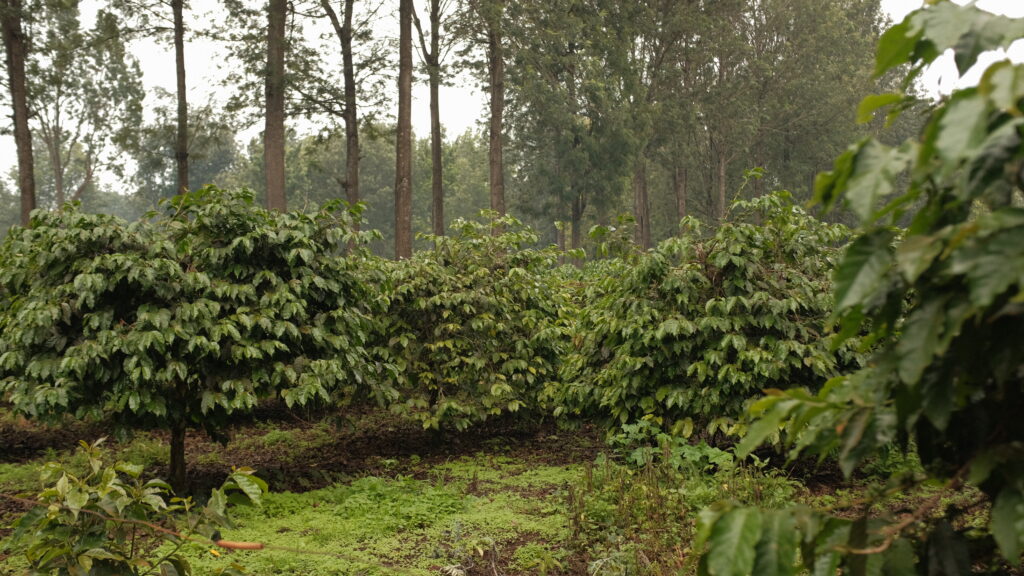
-
A short flight over to Arusha, and the coffee-production styles shift slightly. Arusha is made up of a number of larger estates, especially in the area of Karatu. It is here where Heights Estates grows coffee in the misty mountains of northern Tanzania. Vimax Emin is the current owner and manager of the Estate, inheriting the land from his father who still helps out with the books. His father gained ownership of the land back in the 1980s, the family actually immigrated from India generations ago to help with the building of the East Africa railroad. After exploring other career options, they soon decided to invest in coffee farming.
The Heights Estate (photographed above) is 80 hectares in size, with 30 hectares recently planted with new coffee seedlings. The land is filled with Compact, N39 and Kent varietals, with soils rich and ideal for coffee production.
-
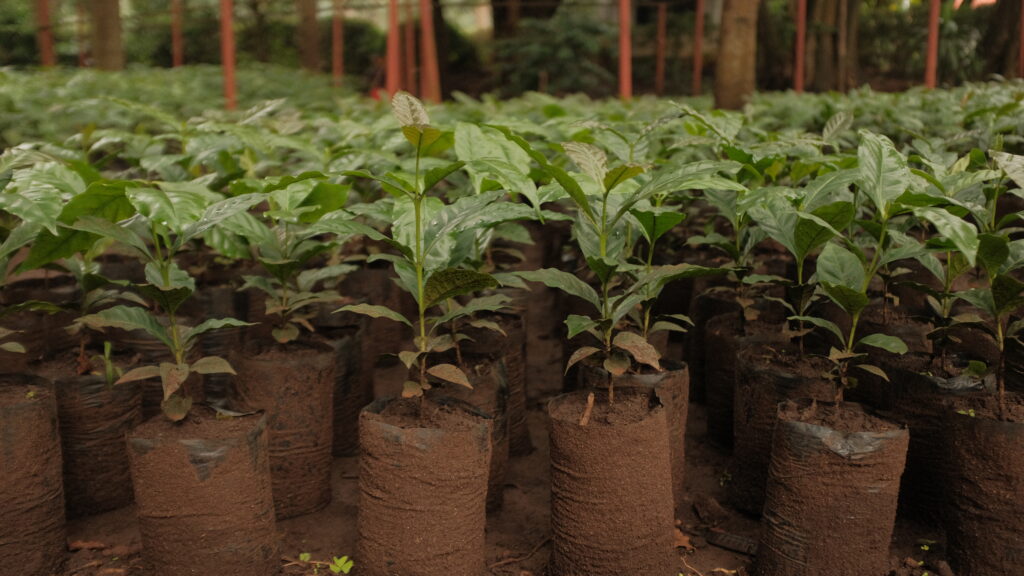
-
Also nearby in Karatu is the Kongoni Estate, owned by the Aggarwal family and managed by Siddarth Patel. The family acquierd the land back in the 1970s, and Siddarth only just started to manage the farm to seek ways to improve production. Currently, the farm is a massive 1,500 hectares, 210 of which are dedicated to coffee. There is also a nursery (photographed above) which is filled with unique varietals including Geisha, Pacamara, SL28, and Castillo.
-
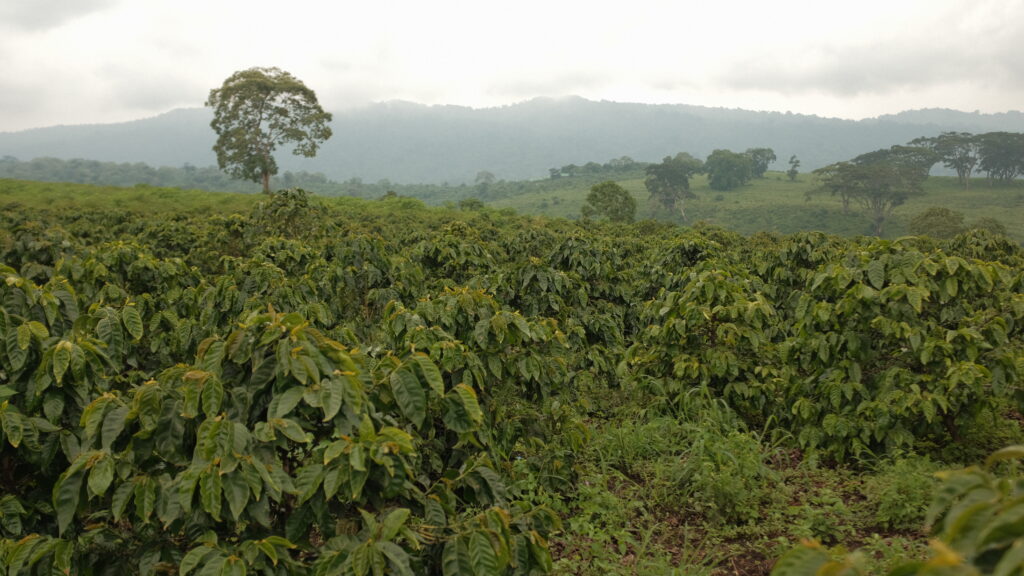
-
The Estate neighbors the Ngorongoro Crater Conservation Area, which is rich with wildlife and preserved forests. This also means that elephants will occasionally venture into the Estate, trampling through the soil and marking the trees with their tusks. Quite exciting! The newer Geisha plot overlooks this beautiful Crater, and one can see elephants sliding through the trees later in the evening.
-
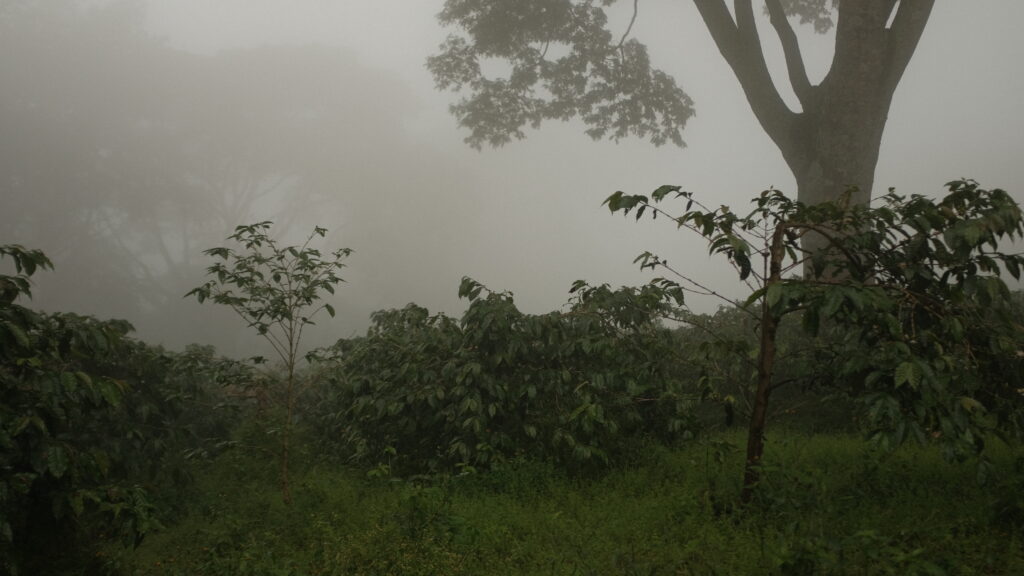
-
Blackburn Estate is also nestled in Karatu near the Ngorongoro Crater, an Estate that was acquired by the Gehrkens, a German family, in the 1960s. Michael Gehrken traveled to Blackburn in 1983 to take over from his father, and has been managing the land ever since with his wife, Tina. Today, the Estate spans across 51 hectares, teeming with coffee, native forests, and plenty of wildlife. The Estate is impressive, planted with Nyasa and an assortment of other varietals, Michael has truly changed the production here and it will be exciting to see the future!
-
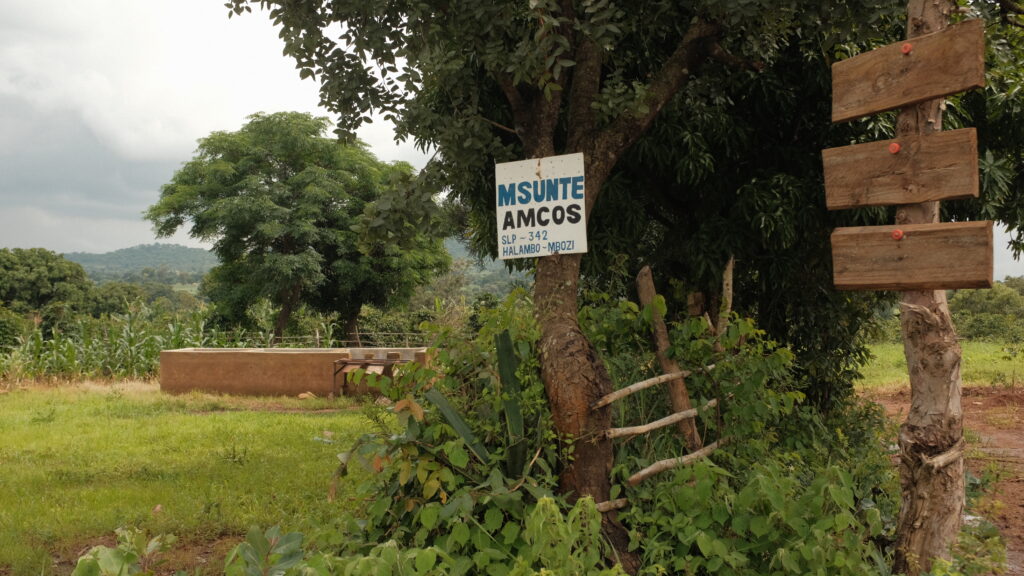
-
When traveling to the southern reaches of Tanzania, it is evident that coffee production is slightly different. The Songwe branch of Coffee Management Services (CMS) collect processed coffees from various AMCOS groups in the area and dry mill the coffee, assess the quality by cupping, and organize shipment.
The soils are rich here, plenty of maize and bananas planted throughout the villages and the air is cool. The border of Zambia and Malawi quite close, as well. One of the AMCOS groups selling their coffee to CMS is the Msunte AMCOS. This group was started two years ago, and have 130 members, including nine women. Farmers typically have 0.4 – 2 hectares of land growing N39, Kent, and Compact. The AMCOS will collect cherries from the farmers, assess the quality and weigh the cherries, then pay a portion to the farmer. The cherries are then processed utilizing a pulper, fermentation tanks, washing channels, and drying beds. They have recently received over 10,000 Compact seedlings from the government to plant throughout the farms.
-
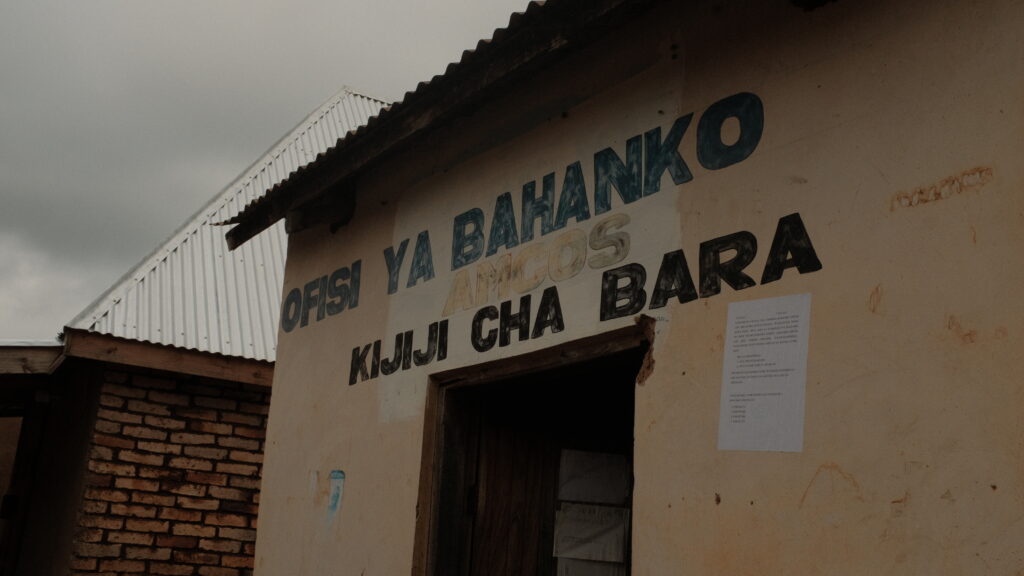
-
Another AMCOS in the Songwe region selling their coffee to CMS is the Bahanko AMCOS. This group was started a couple of years ago, and represent 503 members, 45 of which are women. A similar set up here, whereby they purchase the cherries from the farmers and pay them based on the weight and quality, then they process the coffee and send CMS the dried beans.
The Bahanko AMCOS board mentions that yields have been greatly increasing, and that they have also received seedlings from the government and a local NGO. A bright future indeed lies ahead for Tanzania!
-
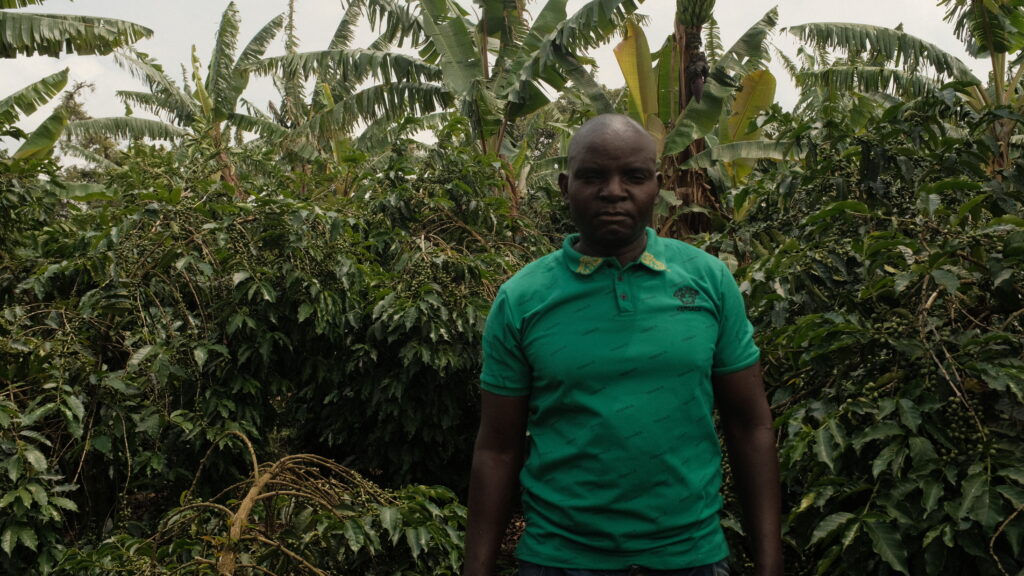
-
Another contributor to the Songwe CMS mill is a farmer named Maneno (photographed above). He is quite unique, since he has 12.5 hectares that he acquired from his father in 2004 and is constantly expanding. It is quite rare for a farm to be so large in Songwe, so Maneno is pretty impressive. He grows primarily Compact and Kent amongst his banana trees on his land. Maneno also has his own small nursery at his home where he grows seedlings to plant throughout his land.
-
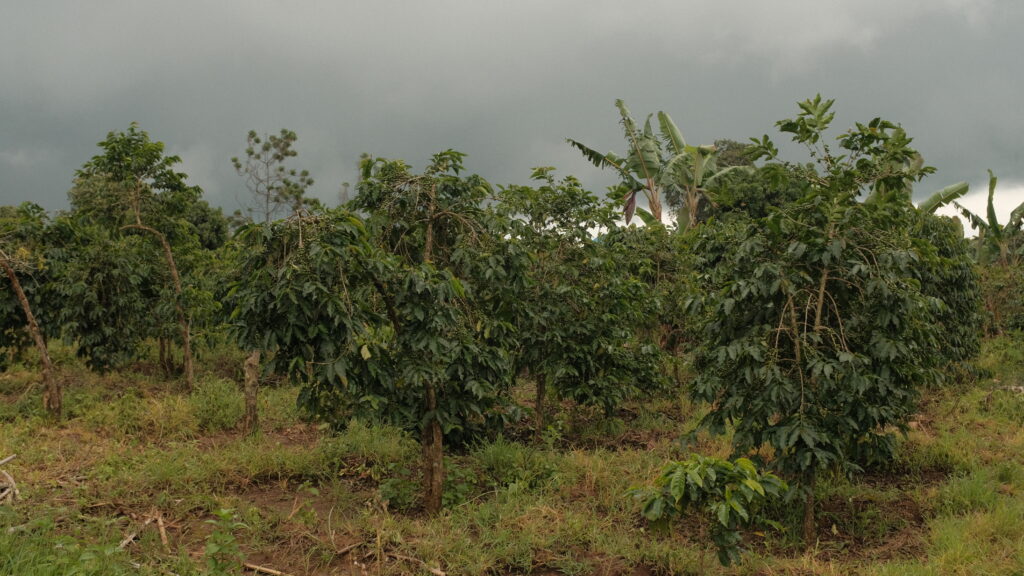
-
Based on the three regions of Tanzania visited, one can clearly see that there is a diverse array of coffee farms, supportive groups, Estates, and mills. Such a strong and kind country with a forward-thinking government. The future will bring plenty of excellent Tanzanian coffee thanks to these amazing farmers and initiatives.